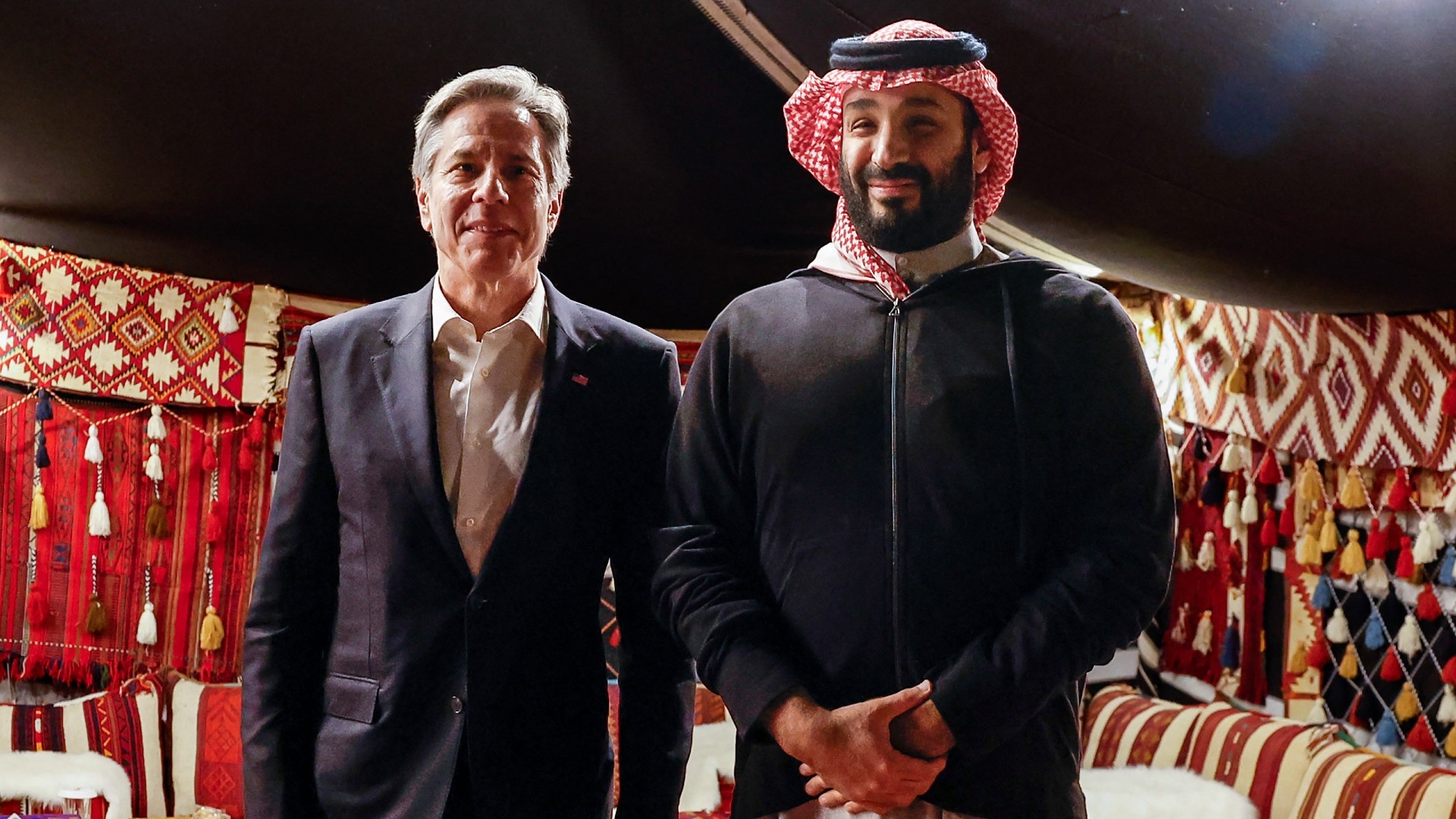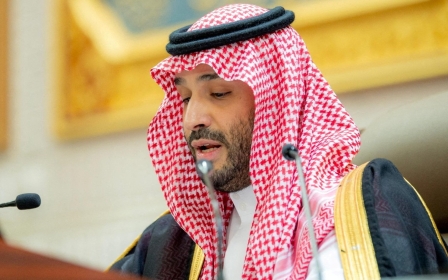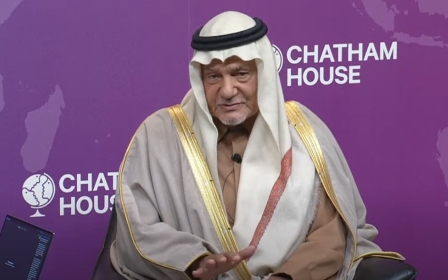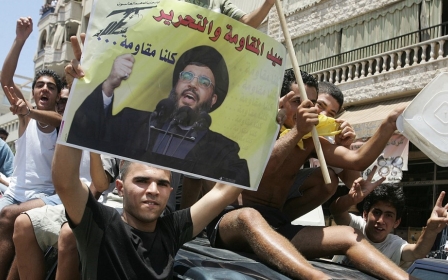Saudi crown prince said he personally 'doesn't care' about Palestinian issue

Saudi Arabia's Crown Prince Mohammed bin Salman told US Secretary of State Antony Blinken that he does not personally care about what he referred to as the "Palestinian issue", according to a report in The Atlantic.
Published on Wednesday, the report gave a picture of 11 months of Washington's negotiation efforts in the region after the outbreak of war in Gaza, citing "two dozen participants at the highest levels of government in America and across the Middle East".
It stated that during a visit to Saudi Arabia in January, Blinken and the crown prince met in the Saudi city of al-Ula to discuss the prospect of the Gulf kingdom normalising relations with Israel amid the ongoing Israeli war on Gaza.
Months earlier, Riyadh had appeared to be making progress in forming ties with Israel during US-led discussions, which were later derailed by the outbreak of war on 7 October.
If a normalisation deal were to occur, the crown prince expressed to Blinken a desire for calm in Gaza.
New MEE newsletter: Jerusalem Dispatch
Sign up to get the latest insights and analysis on Israel-Palestine, alongside Turkey Unpacked and other MEE newsletters
According to The Atlantic, Blinken enquired whether the Saudis could tolerate Israel periodically re-entering the territory to strike the besieged Gaza Strip.
“They can come back in six months, a year, but not on the back end of my signing something like this,” Mohammed bin Salman responded.
“Seventy percent of my population is younger than me,” the crown prince explained to Blinken.
“For most of them, they never really knew much about the Palestinian issue. And so they’re being introduced to it for the first time through this conflict. It’s a huge problem. Do I care personally about the Palestinian issue? I don’t, but my people do, so I need to make sure this is meaningful.”
No deal without a Palestinian state
A Saudi official described this account of the conversation to The Atlantic as “incorrect”.
In public, Mohammed bin Salman has stated that Saudi Arabia will not normalise relations with Israel without the establishment of a Palestinian state with East Jerusalem as its capital.
"The Kingdom will not cease its diligent efforts to establish an independent Palestinian state with East Jerusalem as its capital," he said at a recent annual address before the Shura Council in Riyadh.
'Half my advisers say that the deal is not worth the risk...I could end up getting killed because of this deal'
- Mohammed bin Salman, as reported in The Atlantic
"We confirm that Saudi Arabia will not establish diplomatic relations with Israel until that goal is achieved."
According to The Atlantic, in return for a normalisation deal with Israel, Saudi Arabia would seek to enter into a mutual defence treaty with Washington.
That would require ratification from two-thirds of the US Senate, which the crown prince told Blinken was most likely under a Biden administration. That was partly due to a perception that US progressives may back it if a Palestinian state was built into the deal.
Mohammed bin Salman told Blinken that pursuing a normalisation deal with Israel would come at great personal cost to him. He pointed at the example of Egyptian President Anwar Sadat, who was assasinated in 1981, a few years after signing a peace accord with Israel.
“Half my advisers say that the deal is not worth the risk,” the de-facto Saudi leader said. “I could end up getting killed because of this deal.”
Polling during the early stages of the war showed that over 90 percent of Saudis believed that Arab states should cut ties with Israel.
Despite that, there has been a crackdown on acts of Palestinian solidarity in Saudi Arabia, with reports of people being detained for expressing opinions on the conflict on social media, as well as for wearing a Palestinian keffiyeh in the holy city of Mecca.
'Full support for Palestine'
Earlier this month, Middle East Eye asked senior Saudi royal Prince Turki al-Faisal about the crackdown on Palestinian solidarity in the kingdom.
“I haven’t felt myself any restrictions on my expressions of support for Palestine in Saudi Arabia, nor have I seen any particular reporting on that,” he responded. “Except perhaps in some publications that are not friendly to Saudi Arabia.
'What I see of the Saudi press, whether written or on television or in social media, is full support for Palestine'
- Prince Turki al-Faisal
“But what I see of the Saudi press, whether written or on television or in social media, is full support for Palestine and no restriction on expressing support for Palestinians.”
Prince Turki said that while he was not privy to official discussions, the chances of normalisation at present were slim due to Israel’s stance on Palestinian statehood.
“The whole [Israeli] government is saying no Palestinian state. So how can there be normalisation between us and them with those positions in place?”
Prince Turki also dismissed speculation that Hamas may have carried out its surprise attack on southern Israel - which killed around 1,140 people - in order to torpedo Saudi-Israel normalisation.
"For Hamas to have done what it did, it would have required [time] to prepare for it,” he said. “At least a couple of years to gather the human and material resources to launch a campaign like that.”
Middle East Eye delivers independent and unrivalled coverage and analysis of the Middle East, North Africa and beyond. To learn more about republishing this content and the associated fees, please fill out this form. More about MEE can be found here.




